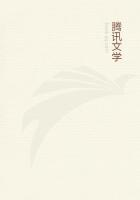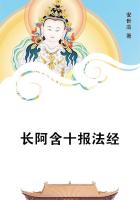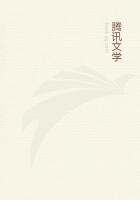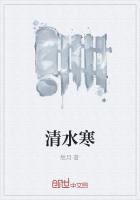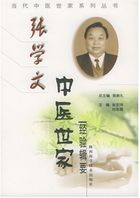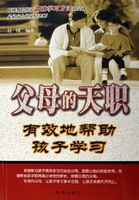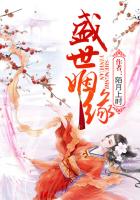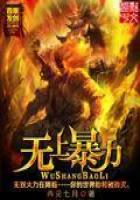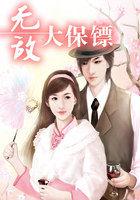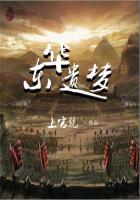He was born, it is generally supposed, in the year 1340; but nothing is definitely known of him till 1357, when Edward III. had been reigning about thirty years. It is surmised that his father was a respectable citizen of London; that he was educated at Cambridge and Oxford; that he went to Paris to complete his education in the most famous university in the world; that he then extensively travelled in France, Holland, and Flanders, after which he became a student of law in the Inner Temple. Even then he was known as a poet, and his learning and accomplishments attracted the attention of Edward III., who was a patron of genius, and who gave him a house in Woodstock, near the royal palace. At this time Chaucer was a handsome, witty, modest, dignified man of letters, in easy circumstances, moving in the higher ranks of society, and already known for his "Troilus and Cresseide," which was then doubtless the best poem in the language.
It was then that the intimacy began between him and John of Gaunt, a youth of eighteen, then Earl of Richmond, fourth son of Edward III., afterwards known as the great Duke of Lancaster,--the most powerful nobleman that ever lived in England, also the richest, possessing large estates in eighteen counties, as well as six earldoms. This friendship between the poet and the first prince of the blood, after the Prince of Wales, seems to have arisen from the admiration of John of Gaunt for the genius and accomplishments of Chaucer, who was about ten years the elder. It was not until the prince became the Duke of Lancaster that he was the friend and protector of Wyclif,--and from different reasons, seeing that the Oxford scholar and theologian could be of use to him in his warfare against the clergy, who were hostile to his ambitious designs.
Chaucer he loved as a bright and witty companion; Wyclif he honored as the most learned churchman of the age.
The next authentic event in Chaucer's life occurred in 1359, when he accompanied the king to France in that fruitless expedition which was soon followed by the peace of Bretigny. In this unfortunate campaign Chaucer was taken prisoner, but was ransomed by his sovereign for 16 pounds,--about equal to 300 pounds in these times. He had probably before this been installed at court as a gentleman of the bedchamber, on a stipend which would now be equal to 250 pounds a year. He seems to have been a favorite with the court, after he had written his first great poem. It is singular that in a rude and ignorant age poets should have received much greater honor than in our enlightened times. Gower was patronized by the Duke of Gloucester, as Chaucer was by the Duke of Lancaster, and Petrarch and Boccaccio were in Italy by princes and nobles.
Even learning was held in more reverence in the fourteenth century than it is in the nineteenth. The scholastic doctor was one of the great dignitaries of the age, as well as of the schools, and ranked with bishops and abbots. Wyclif at one time was the most influential man in the English Church, sitting in Parliament, and sent by the king on important diplomatic missions. So Chaucer, with less claim, received valuable offices and land-grants, which made him a wealthy man; and he was also sent on important missions in the company of nobles. He lived at the court. His son Thomas married one of the richest heiresses in the kingdom, and became speaker of the House of Commons; while his daughter Alice married the Duke of Suffolk, whose grandson was declared by Richard III. to be his heir, and came near becoming King of England. Chaucer's wife's sister married the Duke of Lancaster himself; so he was allied with the royal family, if not by blood, at least by ambitious marriage connections.
I know of no poet in the history of England who occupied so high a social position as did Chaucer, or who received so many honors.
The poet of the people was the companion of kings and princes. At one time he had a reverse of fortune, when his friend and patron, the Duke of Lancaster, was in disgrace and in voluntary banishment during the minority of Richard II., against whom he had intrigued, and who afterwards was dethroned by Henry IV., a son of the Duke of Lancaster. While the Duke of Gloucester was in power, Chaucer was deprived of his offices and revenues for two or three years, and was even imprisoned in the Tower; but when Lancaster returned from the Continent, his offices and revenues were restored. His latter days were luxurious and honored. At fifty-one he gave up his public duties as a collector of customs, chiefly on wool, and retired to Woodstock and spent the remainder of his fortunate life in dignified leisure and literary labors. In addition to his revenues, the Duke of Lancaster, who was virtually the ruler of the land during the reign of Richard II., gave him the castle of Donnington, with its park and gardens; so that he became a man of territorial influence. At the age of fifty-eight he removed to London, and took a house in the precincts of Westminster Abbey, where the chapel of Henry VII. now stands. He died the following year, and was buried in the Abbey church,--that sepulchre of princes and bishops and abbots. His body was deposited in the place now known as the Poets' Corner, and a fitting monument to his genius was erected over his remains, as the first great poet that had appeared in England, probably only surpassed in genius by Shakspeare, until the language assumed its present form. He was regarded as a moral phenomenon, whom kings and princes delighted to honor. As Leonardo da Vinci died in the arms of Francis I., so Chaucer rested in his grave near the bodies of those sovereigns and princes with whom he lived in intimacy and friendship. It was the rarity of his gifts, his great attainments, elegant manners, and refined tastes which made him the companion of the great, since at that time only princes and nobles and ecclesiastical dignitaries could appreciate his genius or enjoy his writings.

